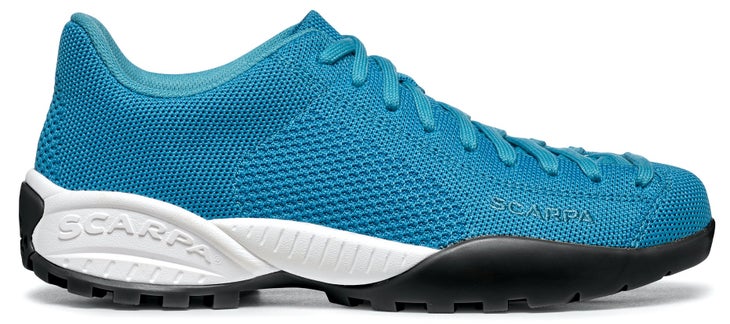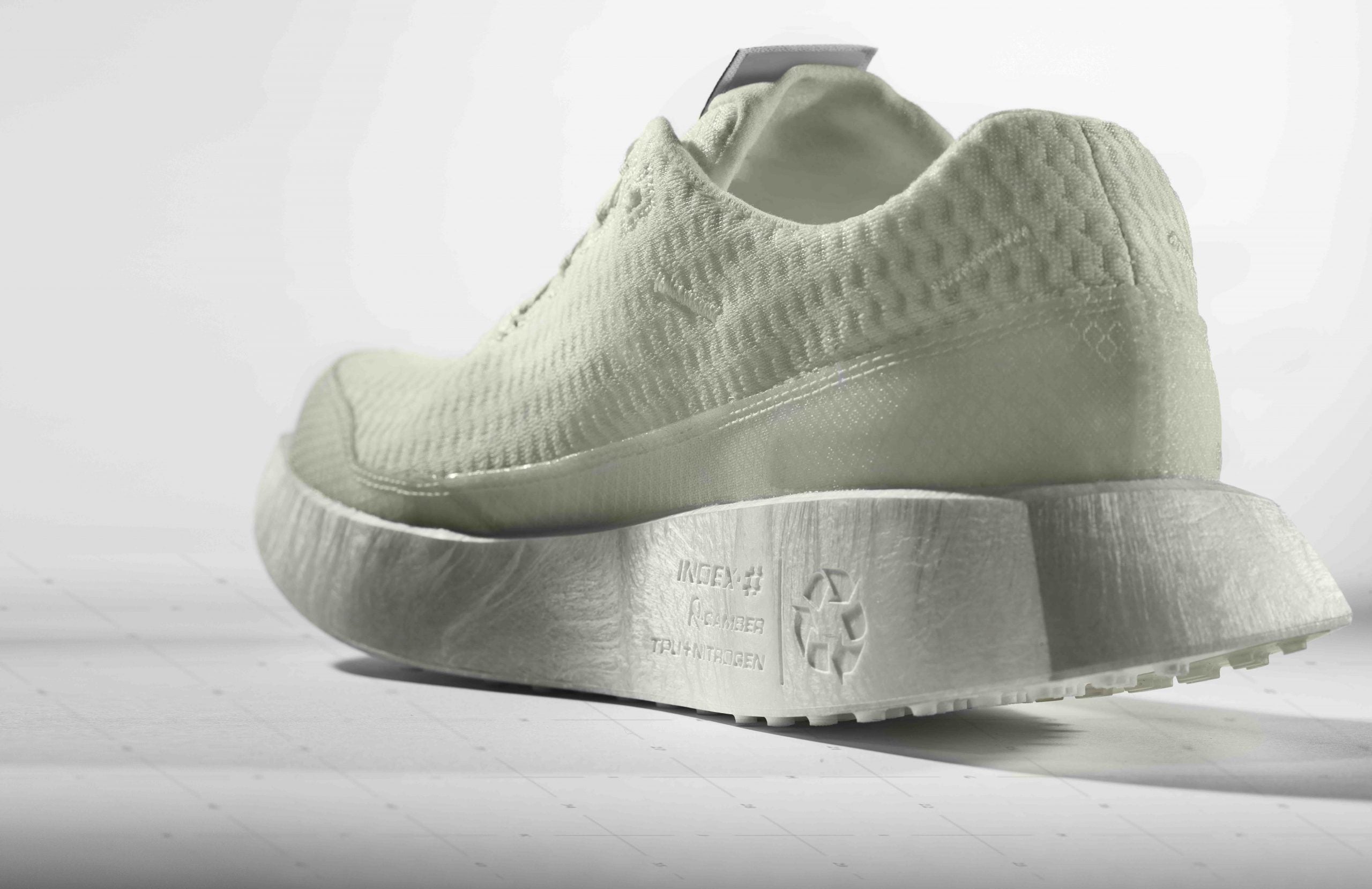Outdoor footwear innovation continues to accelerate at a steady pace, and nowhere is that more evident than in the category’s sustainability practices.
Several brands have introduced, or will soon introduce, shoes that are recycled from other shoes or upcycled from other products, and others are debuting biodegradable shoes.
To find out what innovations are happening in the category, we checked in with several outdoor footwear makers about the material and design advancements they plan to debut either this year or next. The brands listed below are just a sampling of industry players that will be exhibiting their innovations at this summer’s trade shows, but they’re illustrative nonetheless of exciting happenings in footwear innovation across the outdoor space.
One thing seems clear: as consumers continue to demand greener products, brands are answering the call.
Hoka One One: Anacapa
Hoka’s all-new hiker set to hit shelves July 1, the Anacapa, will be available in mid- and low-cut silhouettes. The Anacapa, along with several of Hoka’s other hiking shoes, features more recycled materials in its upper construction, including Gore-Tex fabric with a leaf bootie, which is designed with 45 percent recycled content by weight. The Anacapa “utilizes several recycled materials and marks a step forward in our effort to bring more sustainable practices to our manufacturing and business,” Colin Ingram, director of product at Hoka One One, said.
“At Hoka, we’ve been making an increased effort to be aware of the impact our manufacturing process has on the planet, as well as to take concrete steps to mitigate that impact,” Ingram added. “Of course, we are not the only brand trying to improve our stewardship of the environment. Consumers are demanding that brands act responsibly, and there is increasing recognition in the industry of the urgency with which we need to act to conserve and protect our home. I don’t think this trend is going away—nor should it—and you will see brands increasingly assessing where and how their shoes are made and taking steps to reduce waste and mitigate our effect on the climate.”
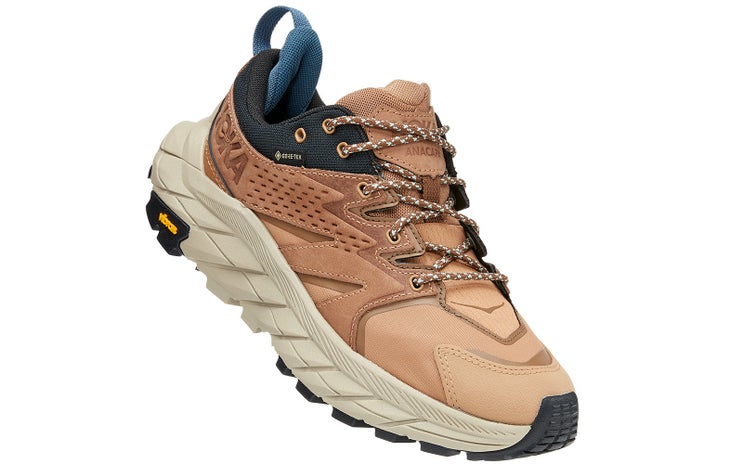
Keen: Howser Harvest/Elsa Harvest collections
Keen has taken big strides in its sustainability efforts, even going so far as to publicly challenge other footwear brands to go PFC-free. The company is upping its sustainability game this year and next with two collections—set for release between November ’21 and April ’22—that include shoes made from old car seat leather and coffee grounds. Keen’s Howser Harvest, Howser Harvest sandal, and Elsa Harvest collections will include these materials, part of the company’s “detox journey” that it’s been pursuing for the last seven years.
“This detox journey started around 2014 with the belief that we need to do more,” said Erik Burbank, VP of the Keen Effect, the company’s corporate social responsibility (CSR) program. “We wanted to focus on taking the toxins out of our supply chain. We’re all about experiencing the outdoors and the mental and health benefits of being outside. The idea of our products causing human and planetary harm was contrary to our core beliefs. We dug into this issue, and what we found was that those PFCs were being applied on everything, so we started along this journey.”
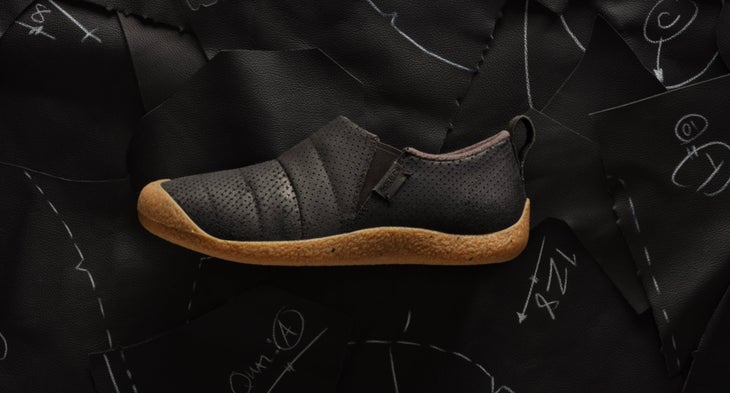
Mammut: Aegility Pro
Though Mammut won’t launch the Aegility Pro until spring 2022, the brand is excited about the product, which “drastically minimizes the number of parts and steps used through a revolutionary design, thus reducing the carbon footprint,” said Christoph Hühnerbein, Mammut’s head of product management footwear. Images and details of the product are under embargo until Mammut’s global sales meeting in May.
“To describe this is not easy,” Hühnerbein said. “You have to see the shoes and the concept, and most importantly, try them on. We strongly believe in taking a step towards more sustainable footwear with this patented design. Above all, sustainability through innovation without compromising functionality is an important guiding principle.”
Salomon: Index.01
Salomon’s newest offering, the Index.01, which hit shelves last week, is a recyclable, performance-oriented road running shoe. The brand says the shoe is “the result of three years of research and development at Salomon’s Annecy Design Center in the French Alps, developed to reduce material waste and lessen the environmental impact of footwear by using circular lifecycle principles. The Index.01 is the latest project from Salomon’s Play Minded Program, the brand’s ongoing sustainability initiative.”
Becky Marcelliano, outdoor marketing manager for Salomon North America, said “Salomon’s Index.01, officially launching in North America on 4/22, demonstrates the value and capabilities of circular economy principles. Salomon will continue innovating with this focus.”
Marcelliano said Salomon’s new factory in Annecy, France, is a game-changer for the brand’s sustainability and circular lifecycle ambitions, as the new facility will provide “localization, reduced transportation lines to our European markets, and better control of the process.”
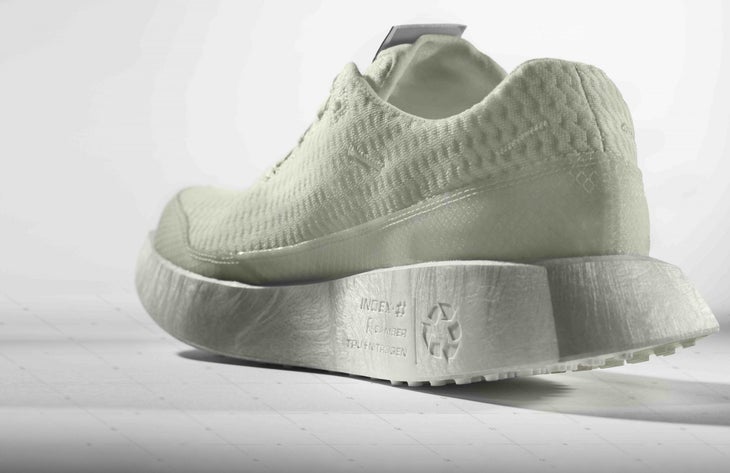
Scarpa: Mojito Bio
The Italian footwear brand Scarpa’s big push this year is B Corp certification. One example of this pursuit in action is the May ’21 launch of the Mojito Bio, made with a “sugarcane-based EVA midsole that provides cushioning and is 100 percent biodegradable,” as well as the incorporation of an “innovative new biodegradable natural rubber,” which the company says is the first of its kind on the market.
The shoe’s upper is constructed with Bio Knit Fabric, a breathable material made from bamboo-derived fibers. The Bio’s lining and laces are also bamboo-based. Scarpa says all other components have a vegetable base and construction uses water-based, non-polluting adhesives. The shoe comes with recycled packaging, too.
“This project was driven by Scarpa’s desire to not have its shoes last for decades or hundreds of years in landfills, as is the case with conventional footwear today,” the company said. “With Americans throwing away more than 300 million pairs of shoes a year, the compounding concern is obvious. Scarpa chose to pioneer this effort with its Mojito, which is its highest-volume selling shoe as a company. It plans to integrate these biodegradable materials technologies into more of its footwear in years to come. This effort also ties in a larger direction for Scarpa as a company to be more sustainably minded.”
